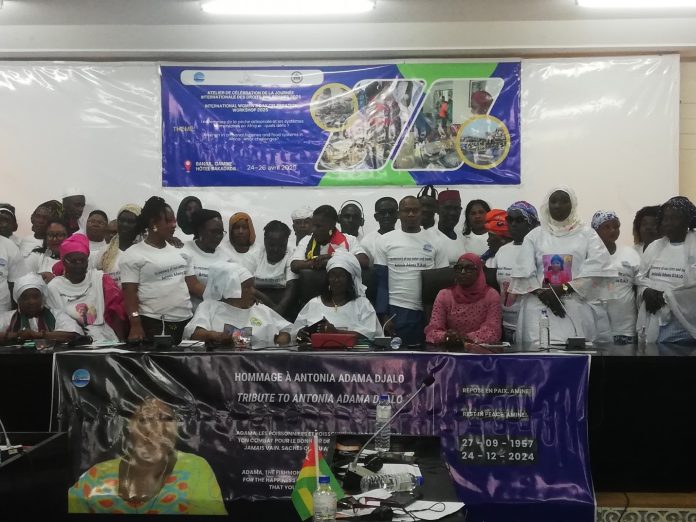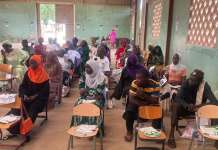By Madiba Singhateh
The African Confederation of Professional Organisations of Artisanal Fisheries (CAOPA) on Thursday, April 24, launched a three-day international program in The Gambia to commemorate International Women’s Day under the theme: “Women in Small-Scale Fisheries: Strengthening Food Security in Africa.”
The event brought together participants from across the continent, including Sierra Leone, Guinea-Bissau, Guinea-Conakry, Senegal, Mauritania, Kenya, and Uganda.
CAOPA emphasised the vital role African women play in small-scale fisheries, highlighting that they constitute nearly 50% of the total workforce in the fisheries and aquaculture value chains. These women are key players in food systems, serving as producers, processors, traders, consumers, and natural resource managers.
The confederation reiterated its commitment to working with member states, institutions, and development partners to craft inclusive policies that promote responsible small-scale fisheries and aquaculture. These policies, it said, must tackle poverty, food insecurity, and malnutrition, while recognizing the decisive role women play in the sector.
Fatou Pierre Choi, President of the National Association of Artisanal Fisheries Operators (NAAFO), expressed her gratitude to CAOPA for its continued efforts to amplify the voices of women in artisanal fisheries.
“Your advocacy and collaboration are instrumental in ensuring that the pivotal role of women is recognized and celebrated across the continent,” she said.
She also paid tribute to the late CAOPA Vice President, Mrs. Adama Antonia Djalo, describing her as a “woman of dignity and commitment to the advancement of women in small-scale fisheries.” Choi praised Djalo’s tireless efforts in advocating for women’s inclusion in leadership and decision-making processes across the sector.
Delivering the official opening statement, Momodou Sidibeh, Deputy Director at the Department of Fisheries, said: “Today, we do more than celebrate—we amplify the voices of the unsung heroines of our blue economy. These are the women who rise before dawn to buy, smoke, sell fish, and harvest oysters—women who turn raw catch into nourishing meals and sustain entire families and economies.”
Sidibeh noted that in The Gambia, women dominate post-harvest activities, playing a crucial role in food security. Yet, he acknowledged the systemic barriers they face: limited access to boats, capital, technology, and exclusion from policy-making spaces. He emphasised that these are not just individual challenges but systemic issues that require urgent reform.
“The Government of The Gambia, through the Ministry of Fisheries and its partners, is actively working to address these challenges. We are currently reviewing key legal frameworks, including the Fisheries Act 2007, its policies, and regulations,” he said.
He also highlighted recent initiatives such as the Fish4ACP and “Try 1 Oyster” projects, which train women in swimming to enhance safety during oyster harvesting. Additionally, through the PROREFISH project, implemented in partnership with the FAO, microloans have been made available to women entrepreneurs, turning struggles into success stories.
Khadija Djallow from Fish4ACP and Ms. Kadiatou Bangoura of CAOPA both spoke about the importance of empowering women in fisheries. They also paid heartfelt tributes to the late Adama Antonia Djalo for her enduring legacy and leadership.
The forum aimed to: Celebrate the achievements of women in the fisheries sector. Raise awareness about the challenges facing women small-scale fishers. Promote the integration of women’s voices in fisheries governance and policy development.




















